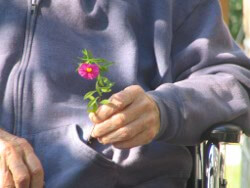- Contact Us
- Careers
- Policies
- About Us
- Parishes
- Schools
- Ministries
- The Office of Black Catholic Ministries
- Hispanic Ministry
- Charismatic Renewal
- Marriage & Family Life
- College Campus Ministry
- Courage/EnCourage
- Miscarriage Ministry
- Prayer Ministry
- Deaf Ministry
- Prison Ministry
- Disabilities Ministry
- Divine Worship
- Divorce Support
- Faith Formation
- Grief Ministry
- Mental Wellness Resources
- Respect Life
- Seek the City to Come
- Young Adult Ministry
- Youth Ministry
- LGBT Pastoral Accompaniment
- Vocations
- myArch
- Outlook365
- Ethics Hotline
- Giving
- Promise to Protect

 we die, we die to the Lord; so then, whether we live or whether we die, we are the Lord’s’ (Rom. 14:7-8). Dying to the Lord means experiencing one’s death as the supreme act of obedience to the Father (Phil 2:8), being ready to meet death at the ‘hour’ willed and chosen by him (cf. Jn. 13:1), which can only mean when one’s earthly pilgrimage is completed. Living to the Lord also means recognizing that suffering, while still and evil and trial in itself, can always become a source of good. It becomes such if it is experienced for love and with love through sharing, by God’s gracious gift and one’s own personal and free choice, in the suffering of Christ Crucified.” Evangelium Vitae n. 67.
we die, we die to the Lord; so then, whether we live or whether we die, we are the Lord’s’ (Rom. 14:7-8). Dying to the Lord means experiencing one’s death as the supreme act of obedience to the Father (Phil 2:8), being ready to meet death at the ‘hour’ willed and chosen by him (cf. Jn. 13:1), which can only mean when one’s earthly pilgrimage is completed. Living to the Lord also means recognizing that suffering, while still and evil and trial in itself, can always become a source of good. It becomes such if it is experienced for love and with love through sharing, by God’s gracious gift and one’s own personal and free choice, in the suffering of Christ Crucified.” Evangelium Vitae n. 67.